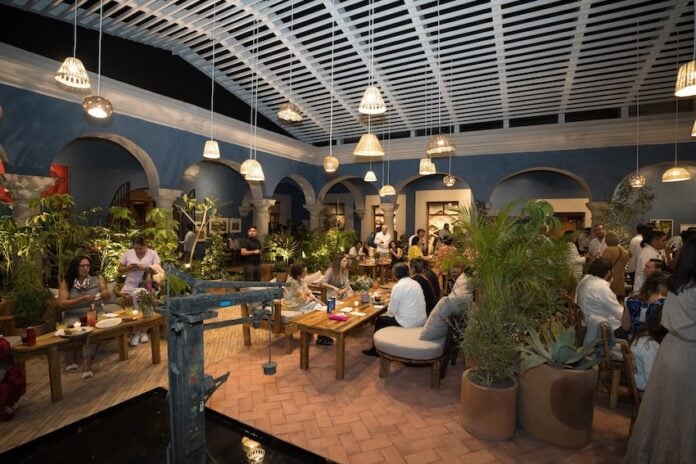The Mezcal Cultural Center (CCM), a space celebrating Oaxaca’s mezcal heritage, came out on top in the 2025 DNA Paris Design Awards on Monday for its innovative mix of traditional and modern Oaxacan design.
The awards recognize architectural and design projects that combine creativity, functionality and respect for cultural identity. The CCM, which opened in October 2023, won in the Interior Design/Renovation category.
The design team, led by Alonso de la Fuente Obregón and made up of Itzel Paniagua, Andrés Vivanco and Mariana Forzán, carefully restored a 17th-century building in the heart of Oaxaca city to create the venue.
The team aimed to promote and preserve the state’s long history of mezcal production, a spirit produced from the maguey plant — known scientifically as agave. The CCM’s Head Chef, Itzel Paniagua, and partners wanted to raise awareness about the cultural and historical importance of mezcal and to put a spotlight on the region’s master producers.
“I see the project as a work of art,” Paniagua told the newspaper Milenio. “As a group, we want to contribute in every way; ensuring everything is well looked after and curated; not just offering delicious food and drinks but having a cultural space… that would showcase the richness of Oaxaca.”
The team preserved materials, textures and colors typical of the building’s era and incorporated contemporary elements to combine tradition and modernity. The designers used the maguey plant for inspiration, with furniture and other pieces that mirror the plant’s leaves and heart.
Traditional materials used in the space include black clay, artisanal textiles and locally treated tropical woods. The CCM showcases art and handicrafts from local artisans and artists, as well as 95 plant species endemic to Oaxaca.
The venue includes an interactive museum, the El Gallo bar, the Alambiq restaurant and a mezcal shop with over 320 Oaxacan mezcal labels. All the mezcal is purchased at a fair price directly from producers, who have committed to planting an agave for every mezcal sold.
Mezcal producers across the state’s seven regions continue to use ancestral techniques for the alcohol’s complex production process, but they are often overshadowed by major mezcal brands, according to Paniagua.
“We take it as if it were just another thing, and people don’t realize all the effort and work a master mezcalero puts into it so you can have a glass of mezcal on your table.”
The team hopes the venue will celebrate mezcal’s community roots as well as raise awareness about its cultural importance.
With reports from López-Dóriga Digital, Culinaria Mexicana and Milenio
